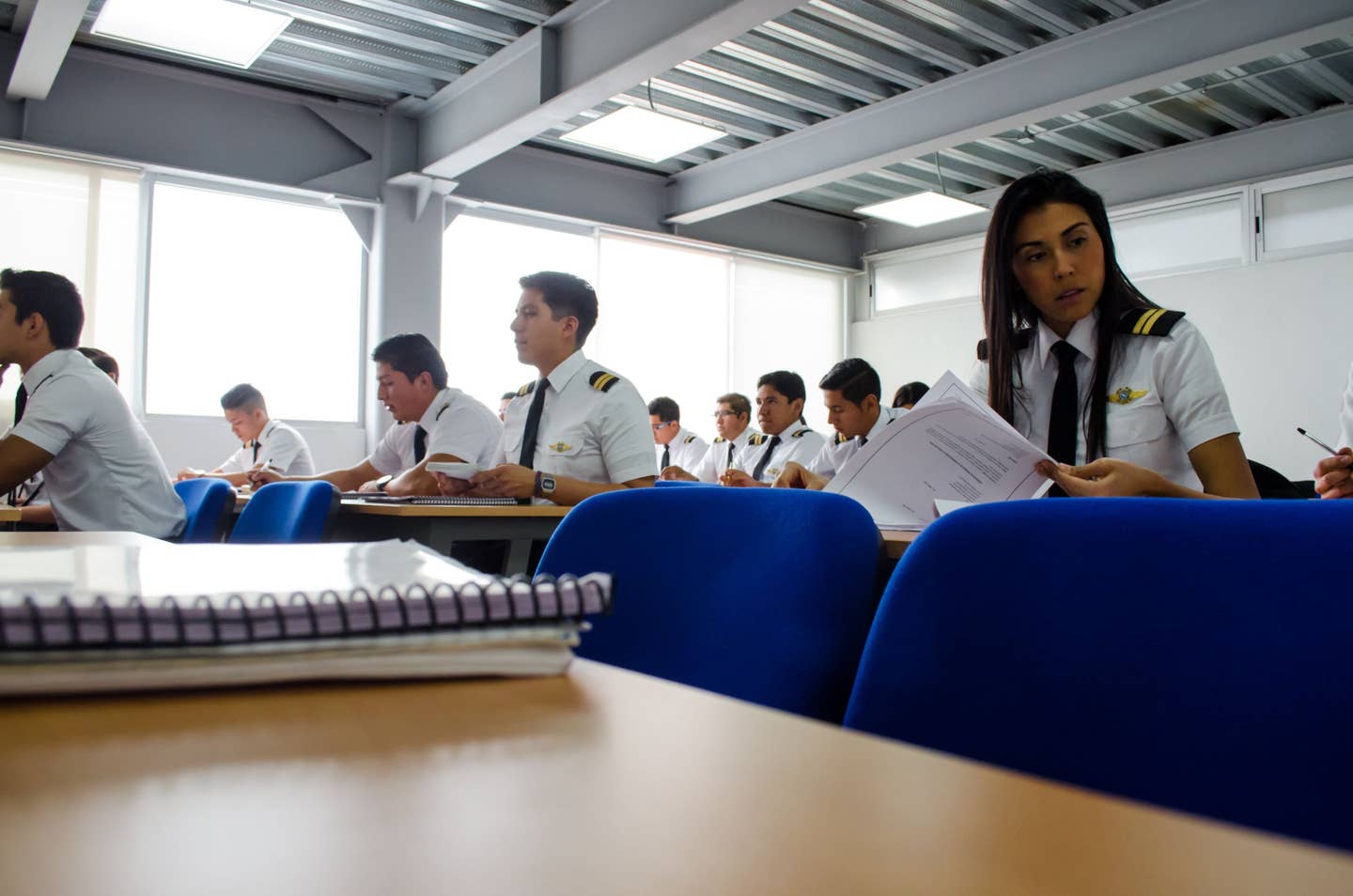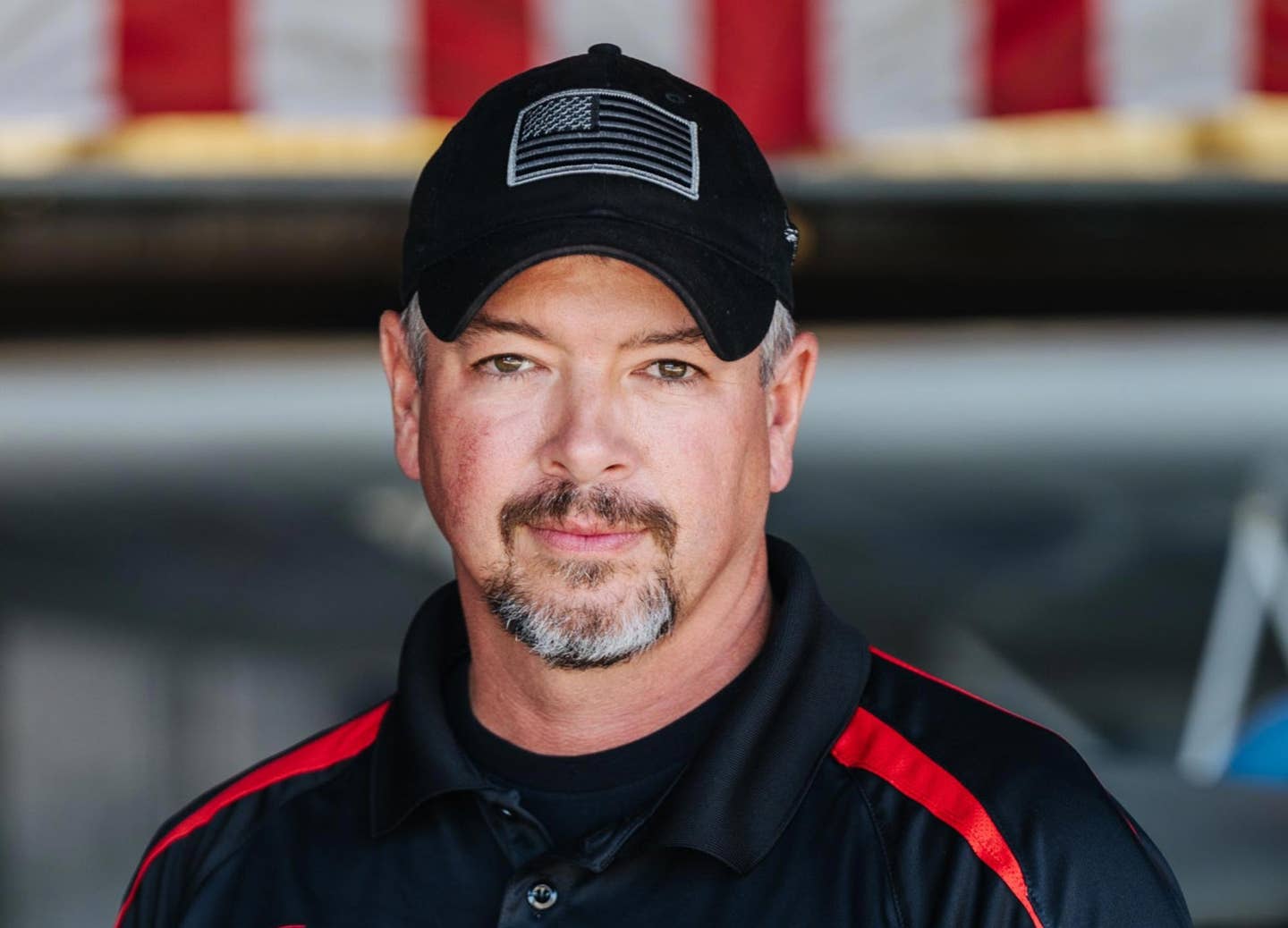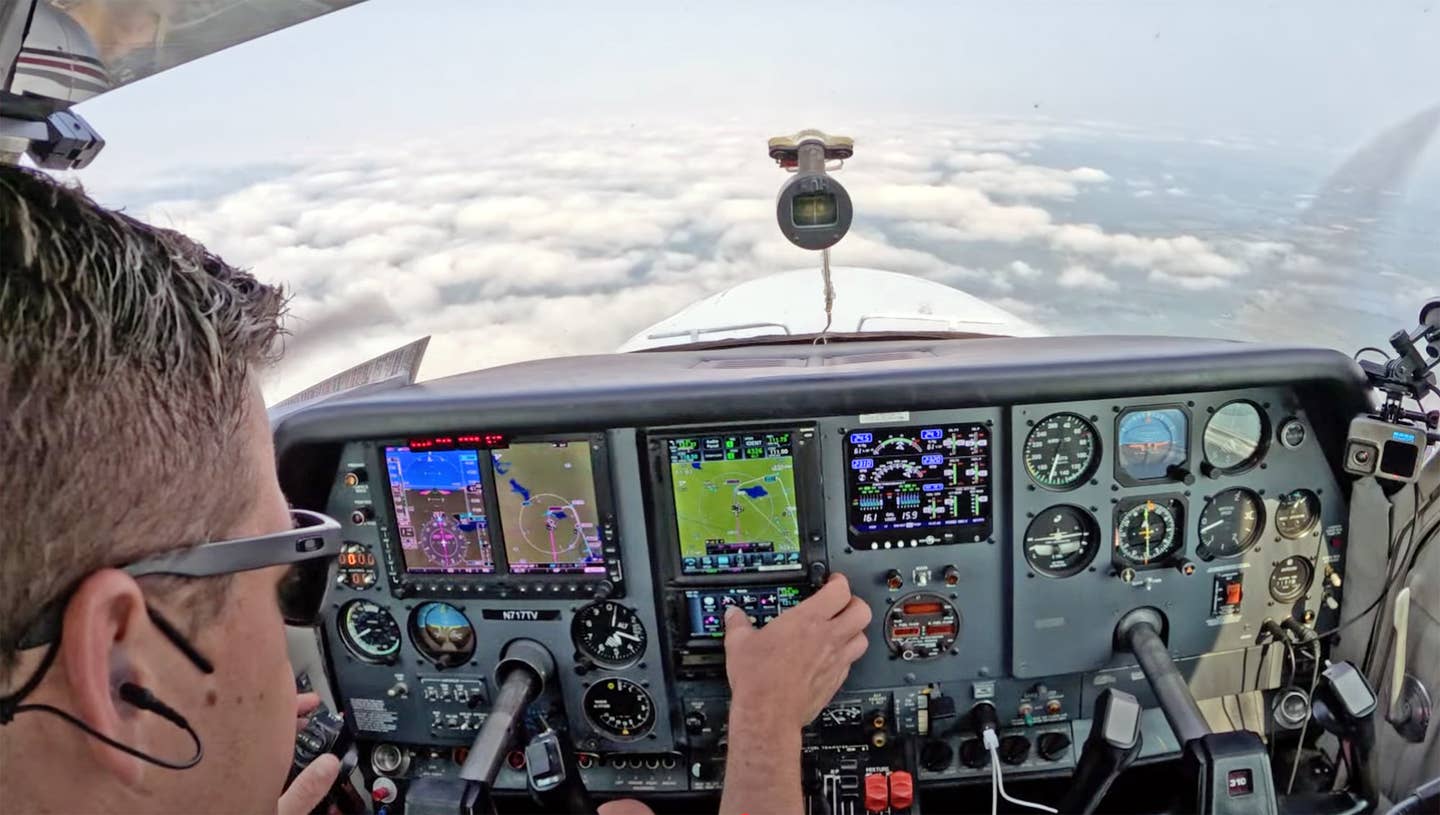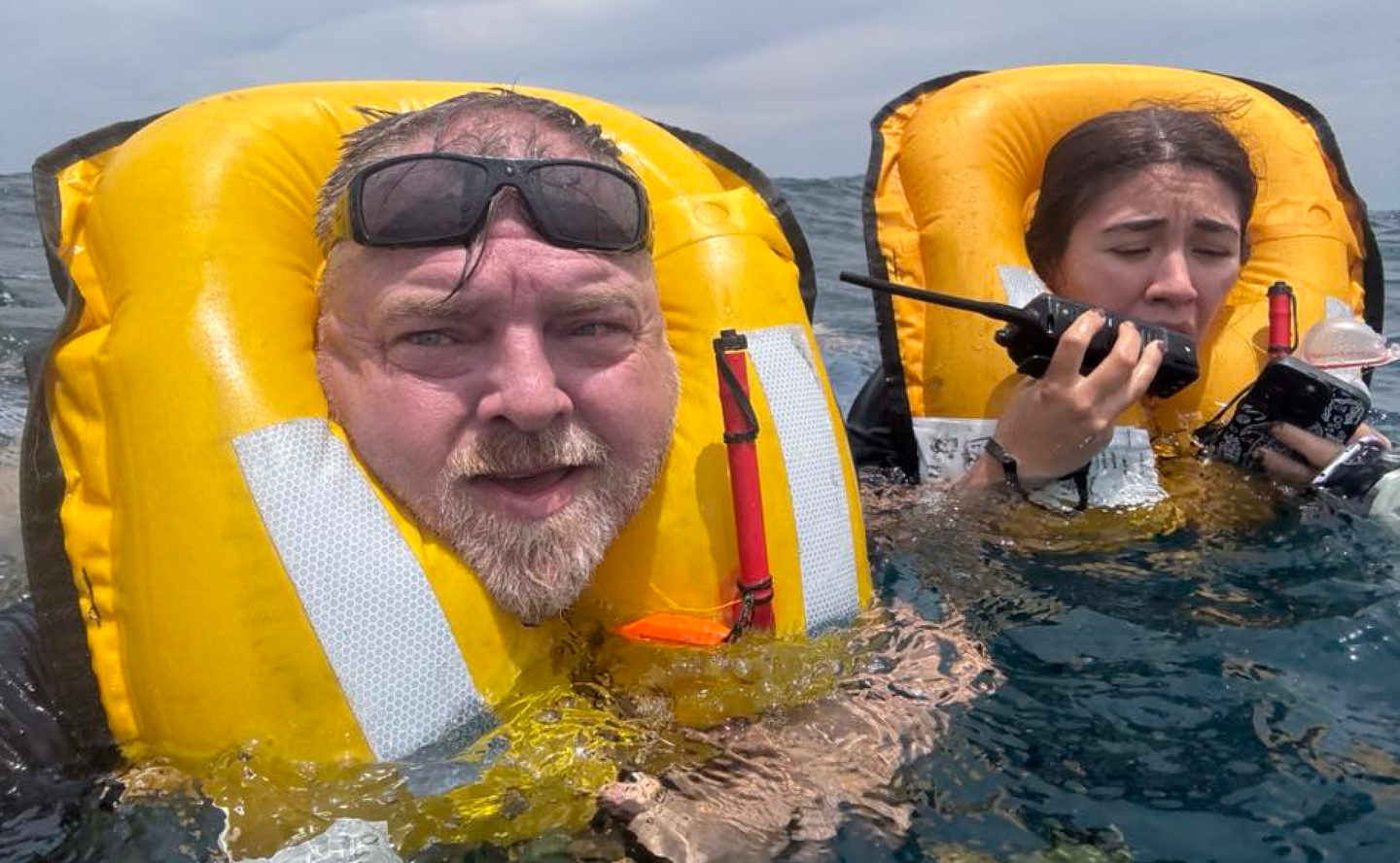Roundup: Airline Academies For Future Airline Pilots
While there are certainly arguments about how many pilots will be needed and when, stats like those presented in Boeing’s last Pilot & Technician Outlook, which estimates that 635,000 commercial aviation pilots will be needed in the next ten years, have caught the attention of the airline industry. So much so that the last five years have seen several airlines and even a couple of aircraft manufacturers launch their own ab initio flight training schools.

While there are certainly arguments about how many pilots will be needed and when, stats like those presented in Boeing's last Pilot & Technician Outlook, which estimates that 635,000 commercial aviation pilots will be needed in the next ten years, have caught the attention of the airline industry. So much so that the last five years have seen several airlines and even a couple of aircraft manufacturers launch their own ab initio flight training schools. While it's too early to tell how most of these new airline cadet academies will work out in the long run, classes have started and incoming aviation professionals are starting down new pathways to a spot with the majors.
Perhaps the most attractive thing offered by these programs is a streamlined approach to training for individuals who are looking for airline careers—especially true for those that offer guaranteed positions or interviews after graduation. So far, in spite of the not insignificant cost, that seems to be something students are interested in.
Most of these academies are just beginning to graduate their first classes, leaving a lot of room for speculation about program effectiveness and even more for how much such programs will actually help to fill the projected need for pilots over the next decade. Still, the founding of ab initio academies and programs marks a significant growth in airline and manufacturer interest in early pilot training and with it, industry investment in new pilots.
JetBlue Gateway Select
Image: JetBlue
The first class of JetBlue's Gateway Select Program graduated from initial training in April 2018. "The program offers the unique opportunity to complete all phases of pilot training with JetBlue," the company said. "Having looked at some of the best commercial and military pilot training programs in the world, we are pleased to offer JetBlue's Program participants the chance to learn how to fly complex aircraft using JetBlue standards from the beginning. This allows for a more seamless transition to a JetBlue First Officer position once all mandated requirements are met."
Gateway Select applications go through several phases. First, applicants submit an online application. Selected applicants then receive an assessment, for which they are charged a $160 fee. The assessment is taken online at a designated testing facility. Those who pass the assessment will meet with JetBlue for interviews after which spots will be offered to chosen candidates. The program is primarily designed for U.S. residents: International assessment testing is not available.
JetBlue says that pilots with prior flight training can apply but cautions that the program is designed for students with no experience. Trainees will go through the same curriculum regardless of experience level and won't be able to test out of any of the training modules. Classes begin three times a year with spots for 16 trainees per class. Training is done with CAE in Phoenix, Arizona, and JetBlue in Orlando, Florida. The program is a full-time commitment and requires relocation for non-local students. Students are also assigned a mentor for the duration of the program.
The Gateway Select Program takes between three and four years to complete with primary classroom, technical and flight training taking approximately two years, and an additional two expected for flight instructing and hour-building. Cost to the student is approximately $110,000, which covers training, supplies, lodging, transportation and some food costs. Payment is due in installments over the first 12 months of training. Financing is available through Wells Fargo and US Credit.
Gateway Select students are offered an E190 First Officer position once they are accepted for training, contingent on successful completion of the program. After meeting all program requirements, including the FAA's 1,500 flight-hour requirement, graduates go into the new-hire pool and complete the same orientation and six-week instruction as other JetBlue first officer new hires.
To be eligible for the program, applicants must be able to legally work in the U.S. and have a high school diploma or GED. They will be required to get and maintain a first-class medical certificate. Student also must have a valid passport and the ability to travel in and out of the U.S. Finally, candidates must be at least 23 years old by the end of training and demonstrate proficiency in reading, writing and speaking English.
Republic Airways LIFT Academy
Image: Republic Airways
Republic Airways launched the Leadership In Flight Training (LIFT) Academy in May 2018, directly citing the pilot shortage as the reason behind the creation of the academy. "By creating LIFT, [we] took a unique, proactive approach to addressing this growing shortage, becoming the only regional airline to operate its own training academy specifically designed to create a direct-to-hire path for its graduates," Republic said. "Students train on state-of-the-art, eco-friendly training technologies with flight simulators built to achieve the most realistic cockpit environment." The first LIFT class began in September.
The LIFT application process starts with filling out an online application. Selected applicants will be invited for an in-person interview and an aptitude assessment at the school in Indianapolis, Indiana. There is no application fee. LIFT tuition runs $65,000, which covers training and materials, including an iPad and headset. Food and lodging are not included. Republic offers financing opportunities and a loan assistance program.
LIFT does accept students with prior flight training. Tuition is prorated for students who already have flight time. New classes begin the first week of every month throughout the year. LIFT is located at Indianapolis International Airport. Training includes a combination of flight, online and classroom time. Relocation is necessary for non-local students. Similar to JetBlue's program, LIFT graduates are guaranteed a first officer position at Republic Airlines upon completion of their training.
Students who attend the program are expected to "pass through all flight ratings and commit to flying with Republic Airways for five years." According to the academy, the training program can be completed in as little as one year. After earning a private pilot certificate, instrument rating, multi-engine certification, commercial certificate and a certified flight instructor certificate, students are given a paid CFI position while building hours for the ATP requirement. Once reaching 1500 hours, the LIFT students begin training for ATP certification and an Embraer 175 type rating.
LIFT students must be at least 18 years old and U.S. citizens. They need to have a valid U.S. driver's license and have graduated from high school. Applicants must also be able to pass an FBI background check, FAA medical examination and random drug and alcohol tests. LIFT also notes that they are looking for good communication skills, including the ability to speak and understand the English language, and good motor skills.
American Airlines Cadet Academy
Image: American Airlines
The American Airlines Cadet Academy (AACA) also opened its doors in April 2018. "Although American is not experiencing a pilot shortage, there is a growing deficiency in the industry," the airline told AVweb. "American wants to incrementally increase the pilot pool by providing a clear pathway to those who might otherwise not have the opportunity."
The application process for AACA starts with an online application that includes an online assessment and essay questions. Selected applicants will then be asked to submit a video interview. From there, candidates will be invited to Dallas for face-to-face interviews and further testing.
Cadets train at one of three partner schools in four locations: American Flyers in Pompano Beach, Florida, and Dallas, Texas; CTI Professional Flight Training in Memphis, Tennessee; and CAE in Phoenix, Arizona. The cost of training and materials varies between schools, ranging from $73,000 at the Memphis location to $89,000 at the Phoenix location. Pricing does not include housing. Funding for the program and associated costs is available through Discover Student Loans.
According to American, the flight training portion of the program typically takes between nine and 12 months at which point the cadet will have their private pilot certificate through their CFI and CFII certificates. From there, cadets will build hours as paid flight instructors. If no flight instructor positions are available at the school where a cadet trained, the academy says it will "make every reasonable effort" to find the cadet a position another school. Once the cadet successfully completes the program and reaches 1500 hours, which American estimates will take 18 to 24 months, they are guaranteed interviews with the airline's three regional subsidiaries—Envoy, PSA and Piedmont.
Cadets begin training as part of a class. The program is still ramping up, but American expects to be accepting about 250 cadets per year by the end of 2019. AACA cadets are partnered with American Airlines pilots, who act as mentors throughout the program.
AACA requires that cadets have the ability to work legally in the U.S., obtain a first class FAA medical, be able to get a valid passport and be at least 21 years old by the end of the program. A high school diploma or GED is required with a college degree preferred and students must demonstrate proficiency in reading, writing and speaking English. Cadets will also need to pass a background check.
Lufthansa European Flight Academy
Image: Cirrus
Lufthansa Group's European Flight Academy is probably the oldest airline-run pilot academy. Unlike most of the others mentioned here, it's been in operation since 1955. The group has locations in in Germany, Switzerland and the U.S. Lufthansa Group airlines include Lufthansa, Austrian, Swiss, Eurowings and Brussels Airlines.
Training takes approximately two years. The first year is focused on theoretical training with flight training beginning the following year. European Flight Academy offers options for two internationally recognized commercial pilot licenses: the airline transport pilot license (ATPL) and the multi-crew-pilot license (MPL). Programs start every three to six weeks and are designed to be a full-time commitment.
After submitting an online application, selected applicants will go through a two-stage qualification process followed by medical and drug screening. The first stage of qualification includes assessments of technical and physical knowledge, English skills, math and logical thinking, cognitive abilities, motor skills and the ability to multi-task. The second stage involves assessments of social, leadership, teamwork and communication skills.
Cost of training runs between €60,000 (approximately $68,100) for the ATPL program and €80,000 (approximately $90,750) for the MPL program. Payment options include paying the entire amount up-front, paying in installments during training and deferring payments until after employment, at which point the fee will be deducted from the pilot's wages. ATPL graduates will be qualified to fly for Eurowings Group Airlines. MPL graduates are qualified to fly for any of the Lufthansa Group airlines. Program graduates are not guaranteed a position.
Applicants need to be at least 18 years old at the beginning of training. Permanent EU and Swiss residence with a work permit and an unrestricted passport is required. ATPL courses require English fluency. MPL courses are taught primarily in German, requiring fluency in both German and English. For the ATPL, a general/subject-linked university entrance qualification or secondary school leaving certificate and completed vocational training is required. For the MPL course, applicants will need a diploma that qualifies them for university matriculation or a general/subject-specific higher education entrance qualification.
Emirates Flight Training Academy
Image: Emirates
Another overseas option is Emirates Flight Training Academy (EFTA). EFTA, which is located in Dubai, opened in 2017 after the completion of its new campus at Al Maktoum International Airport. The school has capacity for up to 600 cadets and is intending to accept around 160 to 180 students a year. EFTA's training curriculum and software infrastructure was developed in collaboration with Boeing.
EFTA says that new students are accepted every three months when space is available. Admissions are currently closed, although interested students can sign up to be notified when the online application is open again. In addition to being tested on math and physics, applicants will undergo a personality test and a pilot aptitude test.
Course completion is estimated at between 21 months and 3.5 years and includes at least 1,100 hours of ground-based training and 315 hours of flight training (including simulator flying). Cadets graduate with a commercial pilot license (CPL), multi-engine and instrument ratings, and frozen airline transport pilot license (ATPL). During flight training, cadets first learn to fly on single-engine piston aircraft and then progress directly to the Phenom 100EV very light jet. Program cost and funding options have not been published. No positions or interviews are guaranteed after graduation.
A high school diploma is required to apply for EFTA, along with proficiency in written and spoken English. International students are accepted. Depending on a student's test scores, foundation programs are offered in English, math and physics.
Boeing Pilot Development Program
Boeing introduced its Pilot Development Program at AirVenture 2014. The program includes English training, basic classroom and flight instruction, jet bridge and type-rating training. Instruction takes place at schools in Boeing's network of training providers and at Boeing training campuses around the world. Courses are designed to produce 737 type-rated first officers.
While initial training occurs through approved providers, Boeing manages applicant screening and selection, managing student performance and correction and developing commercial pilot training courses and materials. Reading, writing and speaking English are required for applicants, along with a first class medical and a visa (if needed).
Like many of the programs already discussed, students typically graduate with 200 to 250 hours, meaning that those who need to meet FAA ATP requirements will need to find hour-building work. Boeing has previously said that it expects that graduates needing hours will be hired into the program as flight instructors. Expected cost for the program is between $100,000 to $150,000. It takes approximately 12 to 18 months to complete and no positions or interviews are guaranteed after graduation.
Airbus Pilot Cadet Training Programme
Image: Airbus
Airbus launched Cadet Training Programme in 2018 in partnership with Escuela de Aviacion Mexico (EAM). The first class of 20 cadets began training in January 2019. Airbus has a second partner location, called the Airbus Flight Academy, in Angoulême, France. Neither location guarantees positions or interviews after graduation.
Training for the EAM program takes place in Mexico City, close to the Airbus Mexico Training Center. Pilots participating in the EASA-based program will complete their initial training at EAM and then transfer to the Airbus Mexico Training Center to qualify on the A320. The program is expected to take 18 months and will include 750 hours of ground school and 200 hours of flight training.
The Airbus Flight Academy program offers initial training at six locations in France. The school has partnerships with several banks to offer course financing with a delayed payment plan.
Applicants to both programs undergo online and on-site screening tests including assessments of English, mathematics and physics knowledge. English courses are available at EAM for students who don't meet the language requirement. A Class 1 medical will also be required. There is a $40 fee for the online assessment and a fee for the on-site testing ($155 at EAM and 200€ at Airbus Flight Academy). The program is open to high school graduates over 18 years old. The EAM class is currently only open to Mexican citizens. Airbus has said it intends to open similar programs in other countries. Course costs vary depending on location.






